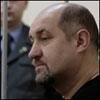Другие материалы рубрики «English»
-
 Prime minister issues privatization warning
Prime minister issues privatization warning
The Belarusian government will sell stakes in state-owned companies only on advantageous terms, Prime Minister Mikhail Myasnikovich... -
 Authorities object to UN committee considering complaint from Kavalyow's family
Authorities object to UN committee considering complaint from Kavalyow's family
The Belarusian government believes that the consideration by the UN Human Rights Committee of a complaint sent by Uladzislaw Kavalyow...
- Authorities short of 1.5 trillion rubels for completing renovation of Minsk-Mahilyow highway
- EU Delegation calls on Belarusian government not to use torture against citizens
- Lukashenka to visit Venezuela soon
- Minsk had $1,266.3-million export surplus in trade in goods last year, official statisticians say
- Sales of foreign cash by individuals reported down 28 percent in 2011
- Emergency management workers widen patch of ice-free water on river in Brest to help stranded swans
- Wife comments on Dzmitry Bandarenka’s pardon application
- Ducks, swans wintering near Minsk
- Citizens received at governmental agencies should not use recording equipment, suggests deputy justice minister
- Conference held in Minsk on Belarusian studies in United States
English
Bandarenka’s wife says she does not hope that her husband will now be released
Volha Bandarenka, the wife of imprisoned opposition politician Dzmitry Bandarenka, said in an interview with BelaPAN on Saturday that she did not hope that her husband would now be released, even though he applied for a presidential pardon.
Mrs. Bandarenka noted that her husband had twice been denied release on parole. “If they really wanted to release him, they would have done that long ago, for health reasons or because he was eligible for early release on parole as a person who had served more than one-third of his term,” she said.
According to Mrs. Bandarenka, despite her husband’s spinal disability, the administration of Correctional Institution No. 15 in Mahilyow had prohibited him from using a crutch and wearing special footwear, but after he wrote the pardon application on February 1, the crutch and soft shoes were given back to him the following day.
Mr. Bandarenka underwent back surgery in the National Prison Hospital in Minsk in July 2011 and was transferred back to the Mahilyow prison in late August.
Before the surgery Mr. Bandarenka's right leg was partially paralyzed and he was said to be in constant pain because of four herniated intervertebral discs and three trapped spinal nerves.
As Mrs. Bandarenka said, her husband may soon undergo another surgery.
In April 2011, Mr. Bandarenka was sentenced to two years in a low-security correctional institution. He was found guilty of organizing disturbances and participating in them in connection with a post-election protest staged in Minsk on December 19, 2010.
According to different estimates, between 20,000 and 50,000 people took part in the protest. The demonstration ended with riot police’s violent crackdown on the protesting crowd in Independence Square. Some 700 people, including eight presidential candidates, were arrested. A total of 44 people were later convicted under the Criminal Code in connection with the protest. Twenty-eight of them were sentenced to prison terms, which ranged from three to six years.
Mr. Lukashenka pardoned nine of them in August 2011 and 15 others in September. Former presidential candidate Dzmitry Uss (Vus) was pardoned and released on October 1.
Former presidential candidates Andrey Sannikaw and Mikalay Statkevich, as well as Mr. Bandarenka, who was a campaign aide to Mr. Sannikaw, continue to be held in prison.
In late December, Alyaksandr Lukashenka said that he would consider ordering the release of the trio only after they asked him for a pardon. He ignored the argument that many of those whom he had already pardoned, including Mr. Uss, had not applied for that. “I can grant a pardon and can deny it,” the Belarusian leader said. “There are certain factors that deter me from the move and spur me to it. But this is my constitutional right.”
According to Mr. Sannikaw’s wife, Iryna Khalip, torturous treatment forced her husband to write a pardon application on November 20, 2011.
Mr. Statkevich reportedly has not applied for a pardon. In mid-January, he was transferred from a medium-security correctional institution to a cell-type prison to serve three years of his six-year term there after a judge found him guilty of violating prison rules.




В настоящее время комментариев к этому материалу нет.
Вы можете стать первым, разместив свой комментарий в форме слева